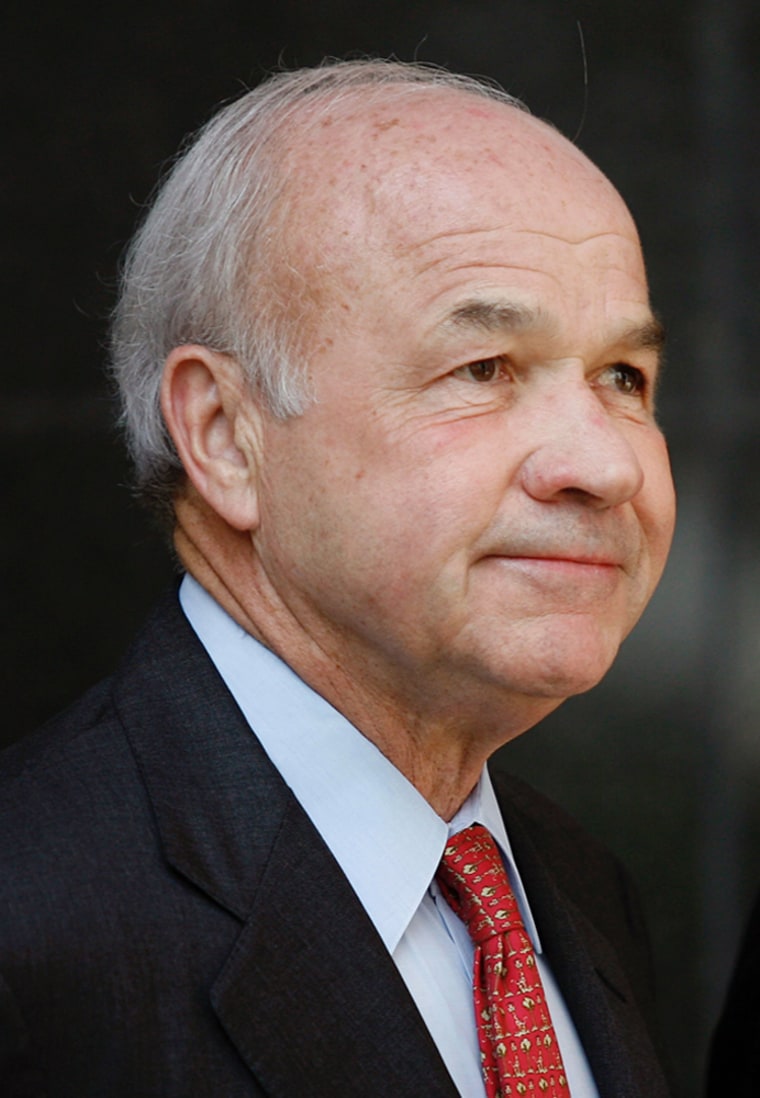Kenneth Lay built Enron Corp. into one of the world’s most powerful energy companies, but the financial scandals that caused its demise also ruined Lay’s reputation.
Lay climbed from poverty to the upper ranks of the business world as chairman and chief executive of Enron, counting among his friends former President George H.W. Bush and President George W. Bush, who nicknamed him “Kenny Boy.”
His rags-to-riches story took a stunning turn in 2001 when Enron collapsed into bankruptcy amid a torrent of accounting scandals that led to Lay’s indictment on fraud and conspiracy charges by the U.S. Department of Justice.
“I guess you could say in the last few years I’ve achieved the American nightmare,” Lay told the jury from the witness stand in his trial in April 2006.
Enron also played a leading role among energy traders who twisted the screws on California during the state’s power crisis of 2000-2001, and was further disgraced when tapes of its own traders joking about ripping off “Grandma Millie” were made public.
Lay, the father of five children and grandfather of 12, was born the son of a poor Baptist preacher on April 15, 1942, in rural Tyrone, Missouri.
He excelled in school, earning bachelor’s and master’s degrees in economics from the University of Missouri. He worked for oil company Exxon Co. for three years before joining the U.S. Navy in 1968 during the Vietnam War.
Jobs at the Pentagon, George Washington University and the Federal Power Commission preceded his appointment as Deputy Under Secretary for Energy at the U.S. Department of Interior in 1972.
Lay’s ascendancy in the corporate world began in 1974, and over the next decade he worked for Florida Gas Co., Continental Group and Transco Energy Co. before becoming chief executive and chairman at Houston Natural Gas Co.
In 1985, Houston Natural Gas merged with InterNorth Inc. The combined company, which held one of the largest pipeline networks in the United States, renamed itself Enron.
Long a proponent of free-market economics, Lay led the energy industry’s lobbying in Washington to deregulate the stagnant natural gas business, which had for years operated in the shadow of the larger petroleum business.
Once those efforts were successful, Lay and his team of aggressive managers quickly drove Enron to the forefront of the industry.
Jeffrey Skilling, a former partner at consultant group McKinsey Co. and a member of Lay’s team, developed a business plan that revolutionized natural gas trading.
Enron’s success in the gas business wet its appetite for profits. Soon, it was steeped in ventures involving water, retail electricity and the Internet.
The company’s growth seemed phenomenal, unstoppable. Then, it imploded.
Billions of dollars in hidden debt were revealed and the darling of Wall Street suddenly became a pariah.
By 2001, Lay had vacated the CEO position to Skilling. But on Aug. 14, after half a year in the job, Skilling abruptly resigned, and Lay was forced to retake the helm. In December, Enron filed the then-largest ever U.S. bankruptcy.
Lay stepped down as chairman and chief executive on Jan. 23, 2002. That year, his second wife, Linda, made headlines when she tearfully told a television interviewer that she and Lay had lost their fortune in Enron’s demise.
The couple liquidated real estate holdings, including a house they owned in the mountain resort Aspen, Colorado, that fetched $10 million. They kept their luxury high-rise apartment in Houston, where they live.
Lay was indicted in July 2004, charged with lying to investors and Enron employees to hide the company’s financial disarray.
On Thursday, Lay was convicted on all six counts of conspiracy and fraud and faces a maximum of 45 years in prison.
